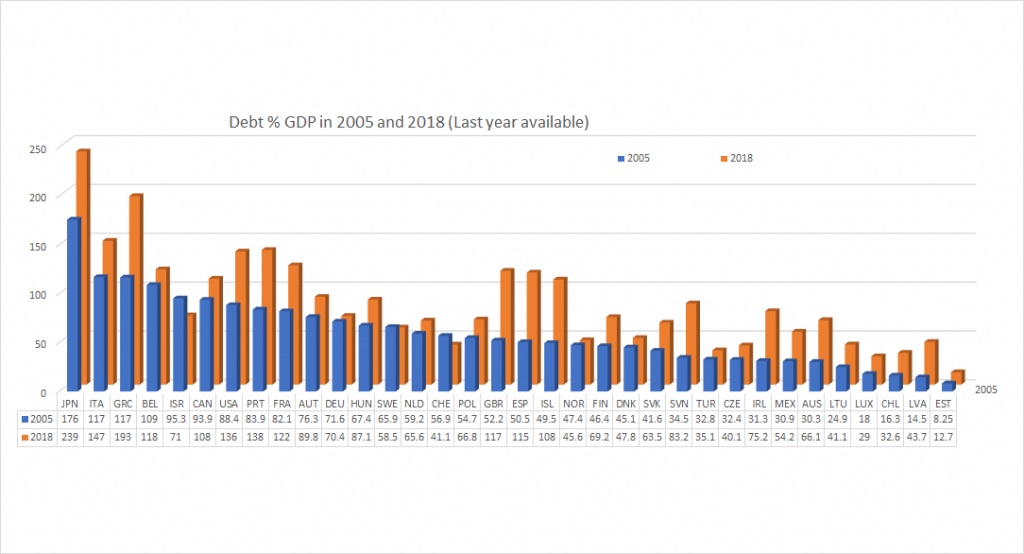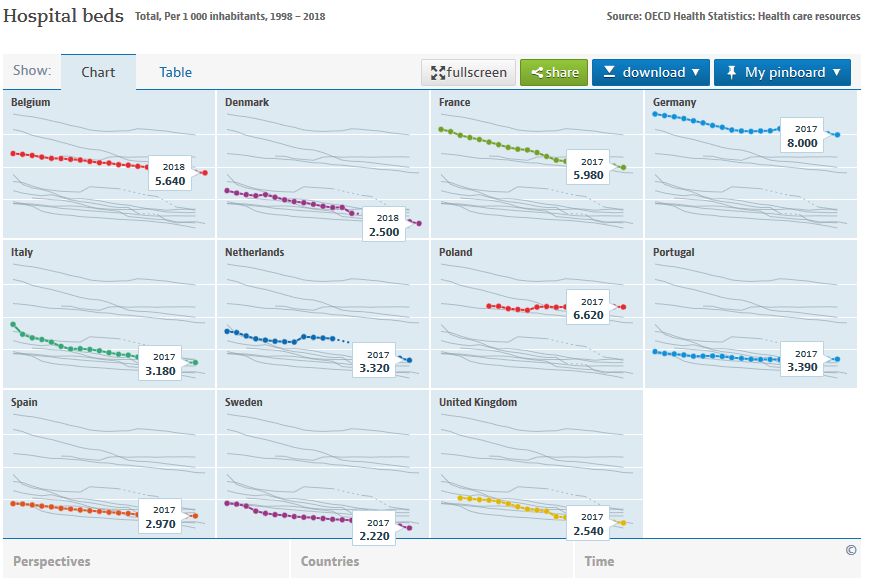Countries in crisis mode can create surprising outcomes. The current Covid-19 crisis is no exception to this rule. In the middle of the crisis or of wars, the construction of peace or apeacement starts. Differences between countries prior to the crisis tend to become further excacerbated through the crisis. Take the country differences in terms of debt burdens for future generations in the OECD (see below, highlighting Eastern European countries and their moderate debt burdens, source OECD (2020), General government debt (indicator). doi: 10.1787/a0528cc2-en (Accessed on 30 March 2020)

If we compare this to the 2005-2019 evolution of the debt burden we see a number of countries that had difficulties to leave the financial crisis behind, i.e. reducing their public debt burden as % of GDP. If we compare this to the 2005 debt burden, we see a number of countries that had difficulties to leave the financial crisis behind.

For all OECD countries in direct comparison this gives figure 3 below (same data source, own depiction). Two readings of this. (1) Absolute levels of more than 100% of debt to GDP rations are much more numerous, also in Europe. Soaring debt is problem for more countries than we might believe, also in Europe, but not restrictied to Europe.

In the Covid-19 crisis we are all concerned about hospital beds (see figue 4), although this is just the top of the iceberg problem. Persons working in medical professions and their equipment seems to be of equal importance. OECD (2020), Hospital beds (indicator). doi: 10.1787/0191328e-en (Accessed on 31 March 2020)

The worrying indicator is the reduction of hospital beds per 1000 inhabitants also from just before the financial crisis or as in figure 5 below since 1998 the last 20 years. OECD (2020), Hospital beds (indicator). doi: 10.1787/0191328e-en (Accessed on 31 March 2020)

Conclusion. Europe needs a strategic reserve capacity not only of hospital beds and medical equipment to rescue its citizens in case of severe crisis. This includes the adequately trained personel that can stop a viral infection early on as a joint effort. Rapid and effective deployment is key just as it is necessary for joint military action and equipment. And for the aftermath an employment insurance that builds on short-time work were necessary and overtime compensation for crisis workers. Europe and the world would be a safer place, just imagine. Imagine all the people …
